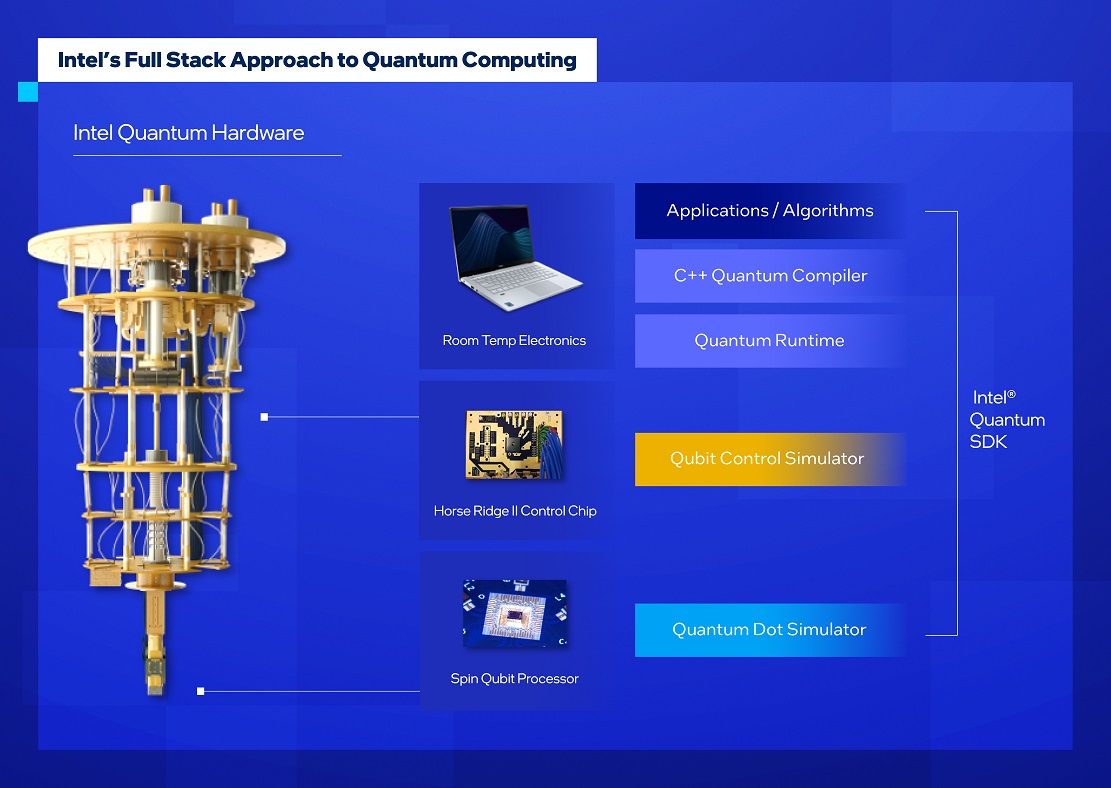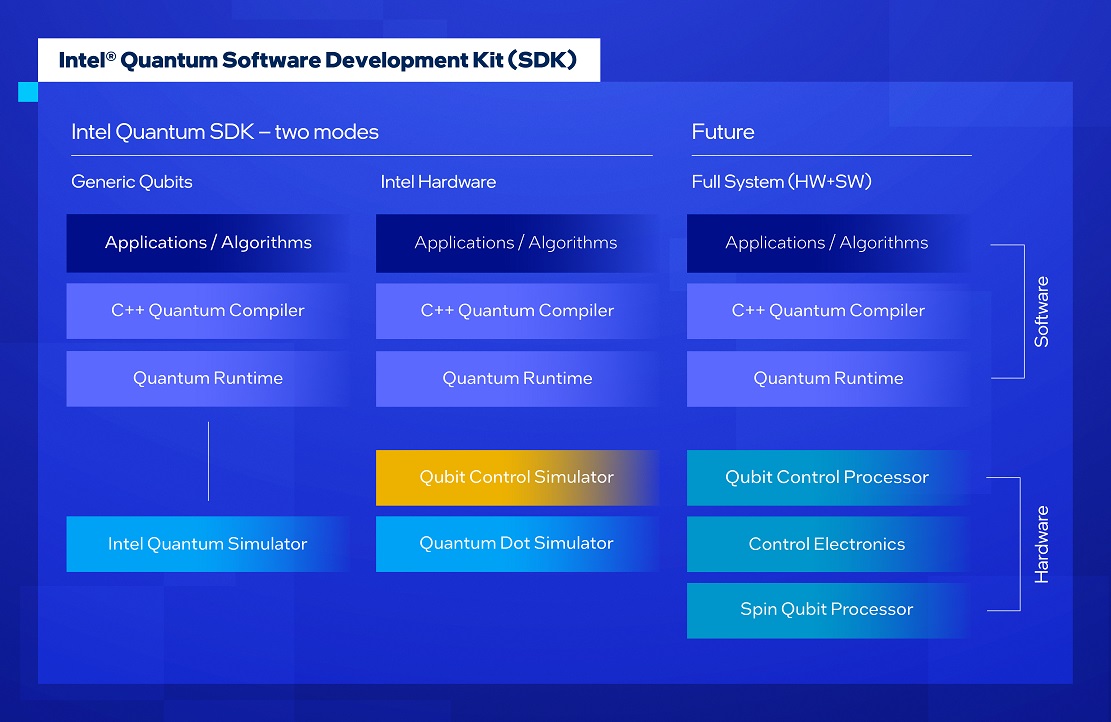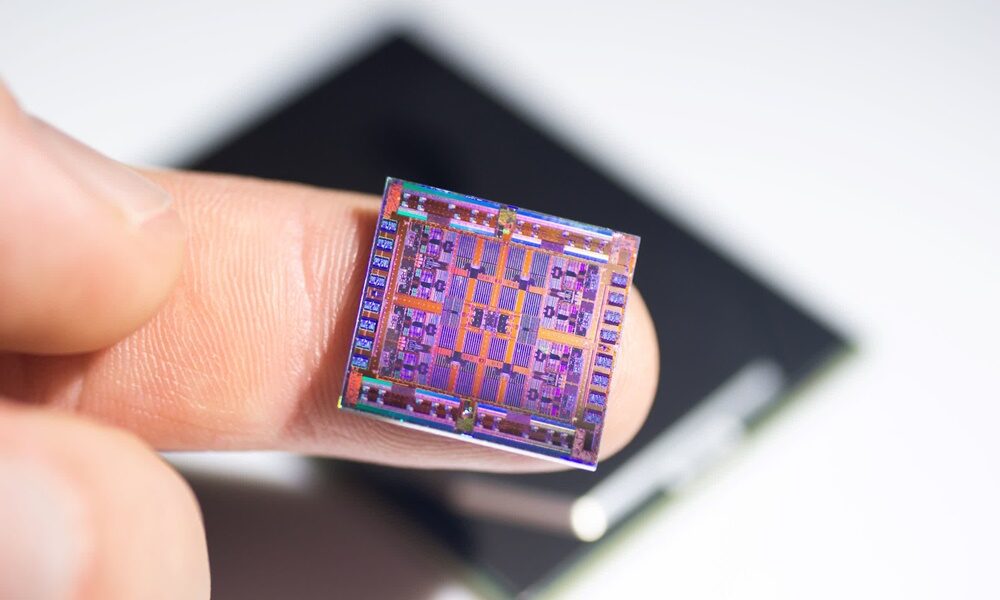
Last September we told you that the chip giant had achieved an important advance in quantum computing, thanks to the creation of the Intel Quantum Software Development Kita development kit that was emerging as the company’s first solution focused entirely on quantum computing, and that represented an important step towards the democratization of this type of computing.
That first release was in beta, which means that the Intel Quantum Software Development Kit has gone through a significant phase of testing which, in the end, has been completely successful, as Intel has confirmed the release of version 1.0 of said kit, which means that it has already left its beta phase, and that it has finally been able to enter a more mature phase.
According to Intel, this development kit will behave, in simulation, as if it were a complete quantum computer and it will also be able to interface with Intel’s quantum hardware, including Intel’s Horse Ridge II control chip and Intel’s quantum spin qubit chip (when available later this year). At the moment, it looks like a very interesting set of simulation tools, because we still have a long way to go when it comes to hardware.
Anne Matsuura, Director of Applications and Quantum Architecture at Intel Labs, commented:
“The Intel Quantum SDK helps programmers prepare for the large-scale commercial quantum computers of the future. Not only will it help developers learn to build quantum algorithms and applications in simulation, but it will also move the industry forward by creating a community of developers that will accelerate application development, so they are ready when Intel’s quantum hardware is available.” .
The kit allows developers program quantum algorithms in simulation, and has an intuitive programming interface written in C++ using an industry standard Low Level Virtual Machine (LLVM) compiler toolchain. This is very important, as it means that the Intel Quantum Software Development Kit 1.0 offers a familiar interface which allows seamless integration with C/C++ and Python applications, making it a more versatile and customizable solution.
This interface also acts as bridge between classical computing and quantum computing, and facilitates collaboration between physicists and classical computing developers. The kit also includes a quantum runtime environment optimized for running hybrid quantum-classical algorithms, and allows developers to choose between two target backends to simulate qubits: simulate a larger number of generic qubits or simulate Intel hardware.
The first backend is a high performance open source generic qubit simulator, the Intel Quantum Simulator (IQS). IQS has a backend capable of hosting 32 qubits in a single node and more than 40 qubits in multiple nodes. The second is a target backend that simulates Intel’s quantum dot qubit hardware and enables the Simulation of Intel Silicon Spin Qubit Compact Models.
With this kit it is possible to develop small workloads for determine what functionality is needed by the system architecture of the quantum computer, all with a view to executing algorithms with efficiency and precision in qubits. It is also important to note that Intel is using the SDK internally to co-design quantum hardware and software in tandem, all for the sake of accelerating the development of the system.
Between the key features of the Intel Quantum Software Development Kit 1.0 we can highlight:
- Code with family patterns: Intel has extended the industry standard LLVM with quantum extensions and has developed a modified quantum execution environment that makes access to this type of computing much more affordable. For its part, the IQS provides a state vector simulation of a universal quantum computer.
- Efficient execution of hybrid quantum-classical workflows: compiler extensions allow developers to integrate results from quantum algorithms into their C++ projects, which makes everything much easier and opens the door to the feedback loops needed for hybrid quantum-classical algorithms, such as the quantum optimization algorithm (QAOA) and the variational quantum eigenvalue solver (VQE).
- High performance simulation: Intel DevCloud users can create executables capable of simulating applications and algorithms with up to 32 qubits on a single compute node and more than 40 qubits on multiple nodes.






